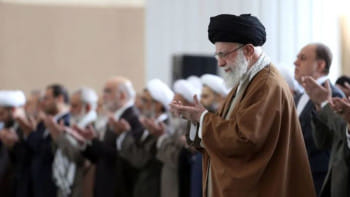‘Mrs Chatterjee vs Norway’: A mother’s fight for justice

The Rani Mukerji starrer, "Mrs Chatterjee vs Norway" is a heart wrenching tale of an Indian immigrant who struggles for the custody of her own children, when they are placed in foster care by Norwegian childcare services. Based on a true event, the film follows the life of Debika Chatterjee, drawing inspiration from the real-life story of Sagarika Chakraborty, an Indian woman whose children were forcefully taken away by the Norwegian authorities.
The film opens with Debika frantically chasing a car as three women forcefully take her children away. The car speeds away with her five-month-old baby, whom she breastfeeds, and her son, who attends a neighbourhood kindergarten and is suspected to have autism. Her desperation builds as she realises her husband Anirudh may be pursuing the legal struggle to reconnect with their children just half-heartedly because he is more focused with obtaining citizenship. All this results in Debika's strong obsession with regaining custody of her children.
While narrating the age-old custody fight, the film highlights the various difficulties that immigrants face. Debika's predicament reveals a lack of cultural awareness, inclusion, and empathy when authorities protest her parenting methods such as hand-feeding her children and sharing the same bed. The issues are severed to the point that the foster care workers label Debika to be mentally unfit, who would be unable to take care of the children as they proceed to become wards of the state. It brings out a number of problems, like how the foster system forces immigrant children to blend into Norwegian culture, or how foster parents are involved in a corrupt system where everyone makes money by trading children.
Apart from being aggressive, the main complaint levelled against the Chatterjee household is the fact that Anirudh Chatterjee does not help his wife in household tasks. Instead of allowing viewers to explore the complexities of an ordinary household, the film states everything out loudly. As a result, the picture foregoes the intricacies and nuances necessary to develop a connection with the audience. Anirudh's character has been left unidimensional in order to establish him as an unfeeling husband eager to accomplish his selfish aims. While doing so, it also highlights the harsh reality of the patriarchal system surrounding our lives.
At its core, this is the story of an ordinary immigrant woman who goes to extraordinary lengths to get custody of her children. This high-voltage drama, powered by Rani Mukerji, is about a mother's undying love for her children. The director, Ashima Chibber, skims over several true points about patriarchy, domestic violence, and what it means to be a good mother. She does not whitewash her problematic protagonist, but the execution only touches the surface. The makers set out to tell a very important story, and it manages to send viewers into a frenzy of emotions. What it lacks is the depth associated with handling such a sensitive issue. They try to make up for this by replacing cinematic complexions with familial drama, but the absence is felt thoroughly during the first half.
With a quality actor like Rani Mukerji on board, the director could have effortlessly shaped her into a far more complicated character than we get to watch. The actress, who has the ability to be natural on camera, goes beyond and dramatic. Her raucous struggle for justice fills the first half with more noise and less pain. However, she nails the tone of her character in the second half, where her silence allows viewers to think and feel more freely. Rani gradually transforms into the aggrieved mother and is effective once she allows her eyes to say volumes. Her portrayal of a mother fighting for her child has been critically acclaimed, with people calling it one of the best performances of her career. She eats doodh-bhat-kola, the ultimate Bengali comfort food, wears exquisite jamdani sarees over trench coats, and constantly slips into Bangla mid-conversation. It almost looks like a peek into her everyday life, where a typical mother centres her life around her children.
Another character worth mentioning has to be Jim Sarbh. He elevates and gives the film its best moments. His understated performance of an Indian-origin lawyer in Norway captures the entire essence of the film. When his character criticises the concept that adoptive parents cannot be as loving and caring as biological parents, Sarbh makes viewers think, and they crave for more screen time with his arguments at the climax.
With a story this emotive, the film needed less theatrics and more thoughtful periods. Still, it manages to present a narrative that has to be shared in order to remind us of the strength of a strong-willed mother. It provides a closer look into the anguish of a mother, who is forced to run from one court to another in order to reunite with her own children. It makes one think of the strength of a mother, and the extent she can go to protect the rights of her children.
Another noteworthy character is Jim Sarbh, who delivers a standout performance in the film. His understated portrayal of an Indian-origin lawyer in Norway captures the essence of the film. When his character challenges the notion that adoptive parents cannot be as loving and caring as biological parents, Sarbh prompts viewers to contemplate, leaving them yearning for more of his screen time and arguments during the climax.
With such an emotionally charged story, the film could have benefitted from fewer theatrics and more contemplative moments. Nonetheless, it successfully presents a narrative that deserves to be shared, serving as a reminder of the strength and determination of a mother. It offers a closer examination of the anguish experienced by a mother who is compelled to navigate from one court to another in her quest to reunite with her own children. It provokes thoughts on the unwavering power of a mother and the lengths she will go to protect the rights of her children.

 For all latest news, follow The Daily Star's Google News channel.
For all latest news, follow The Daily Star's Google News channel. 




Comments